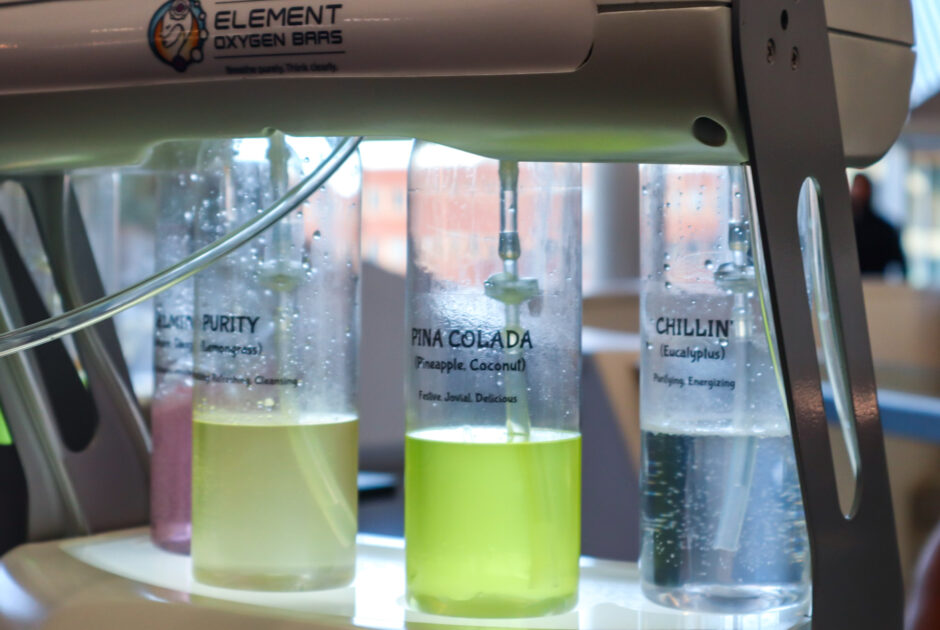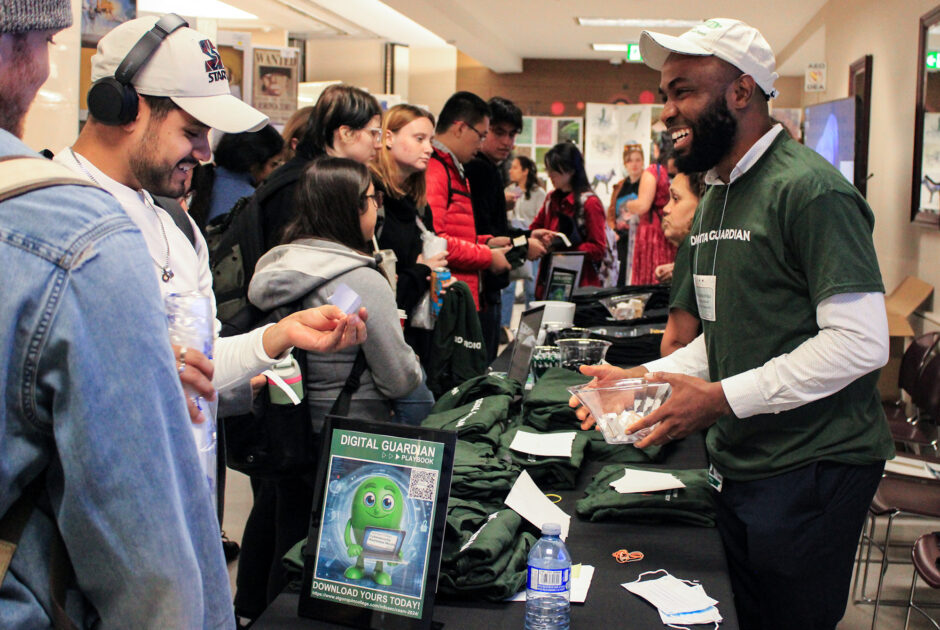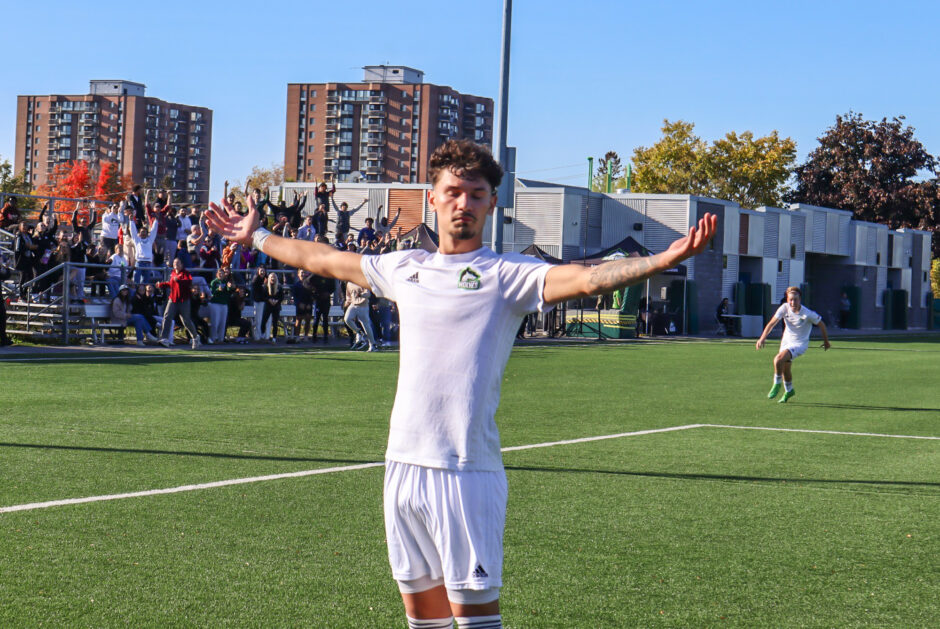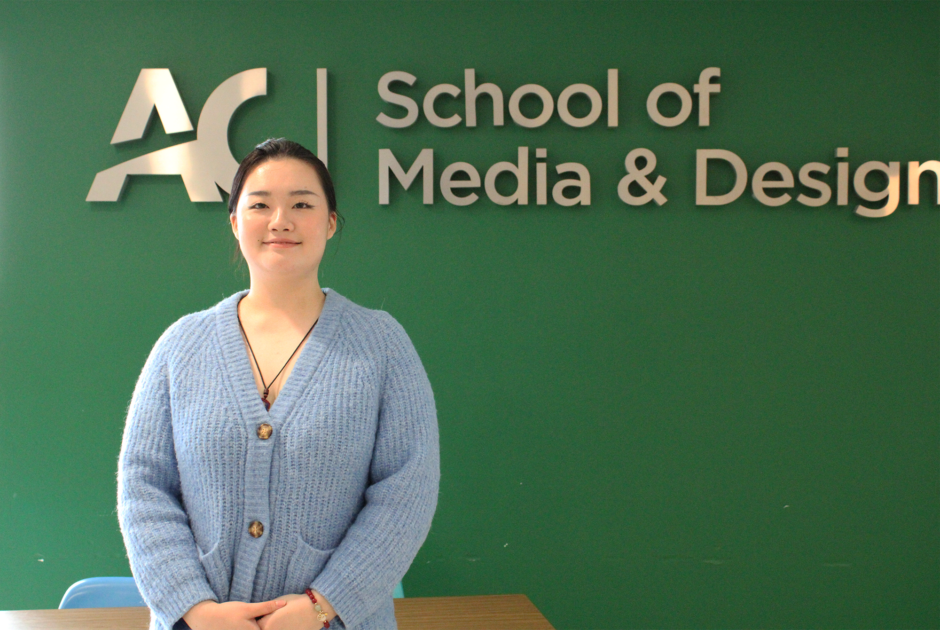Television Broadcasting students help CTSACT broadcast charity event
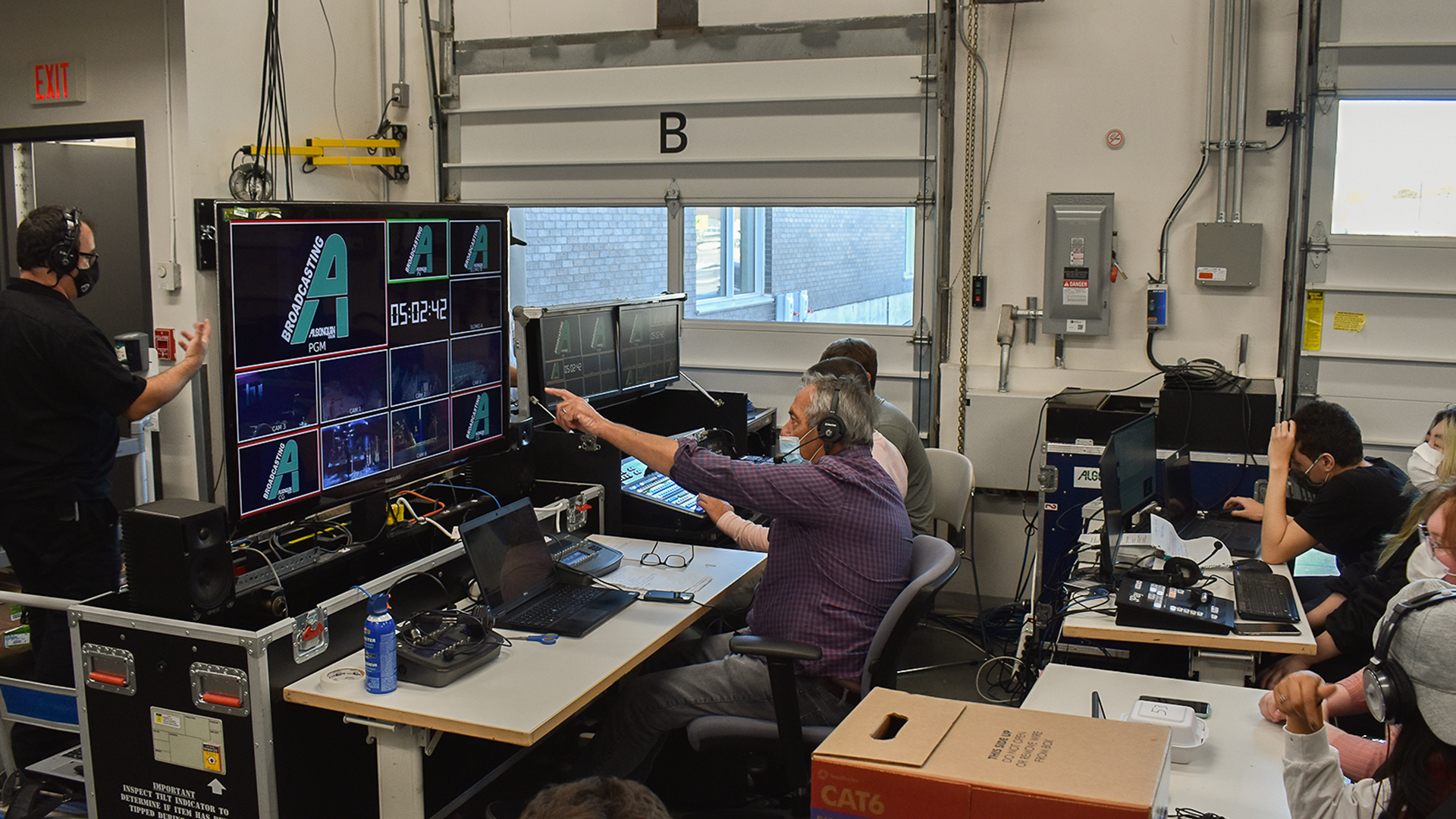
After a year of remote learning, students of the television broadcasting program broadcasted their first live event.
On October 8, the Centre for Sexual Abuse and Childhood Trauma (CTSACT) held a charity event at the Algonquin Commons Theatre to raise funds for their organization so they could lower the cost of the services they offer.
Genevieve Leblanc, an associate therapist at CTSACT and the event’s MC, mentioned that services offered at their centre are not currently covered with OHIP and that there are very few organizations like theirs that are.
A silent auction was held during the event, as well as musical performances by three Ottawa area artists. However, this event would not have been able to be streamed without a dedicated team.
David Grigg, a professor of live event production in the television broadcasting program at Algonquin, said he was contacted by CTSACT in June.
“They approached me and asked if I would be interested in doing it [the event],” said Grigg. “They told me […] it was three different performances and that it was for charity and I thought it was a good idea.”
Grigg brought this idea to Ken MacLeod, the senior manager of theatre and venue operations, and Macleod ironed out the details with CTSACT.
“I came along and when Ken was planning it, he wanted to have four different stages per se,” said Grigg. “There’s three different performers at the house position but they’re going to be in different parts of the theater.”
Grigg mentioned that that element really attracted him because it gave him and his team of students so many places to shoot video and it would not all strictly be on stage. “That was pretty cool and that excited me so I put it on the schedule.”
Riley Thero, 20, a third-level television broadcasting student at Algonquin, explains that in the first year of the program they had in-person classes twice a week, as opposed to three times a week this year.

“Being online sucks,” said Thero. “This program is very hands-on like you’re playing with the equipment, cameras, switcher, audio. You need to be at the college for that.”
Thero explained that many of the courses in the first year were online, and some that should have been in person were not, and so that was an added challenge, as it affected their knowledge of the equipment.
Leading up to the charity event, Thero mentioned that they had enough practice using the equipment to the point they could run a five-minute news show or run a news story and even did a kid’s show as one of their final shows in the first year.
“Last year we wouldn’t have a sweet clue how to come and do a live event,” he said. “I’ll put it this way, 15 minutes in the studio was worth more than six weeks online.”
Thero was unsure as to the reason his professors decided to do the event but was happy to be able to get the practice in.
“I can’t speak on behalf of my professors if it’s the nature of the live event,” he said. “Regardless, it’s definitely – just get events. Let’s do events if it’s small, big, whatever. As many as we can do [let’s] get them.”
Ethan Morse,19, another third-level television broadcasting student, said that this being his first live event production, he will likely be more nervous once the event starts.

“We have another two hours until it starts,” he said. “But when it does, it’s going to all hit me at once and it’s going to be a little nervous [sic] at the beginning, but I feel like I’m going to get used to it after a while.”
Morse mentions that learning for much of his first year online brought its own sets of challenges.
“Yeah, it was definitely challenging,” he said. “One of the classes we had was learning about all the equipment we have to use and stuff – of course, that class is online for some reason.”
Morse said that he remembers more of the stuff he learned on campus than he learned online because he was actually using the equipment and getting a feel for it.
The students were nervous but also excited.
“Everyone’s a little nervous. Everyone’s excited. But overall, I know my team and I are going to do great things,” said Morse.





